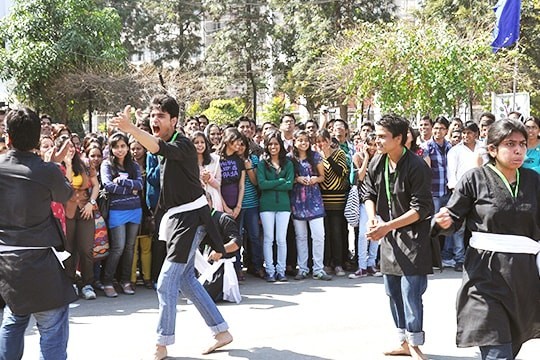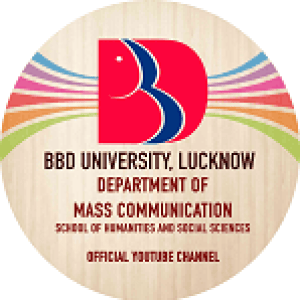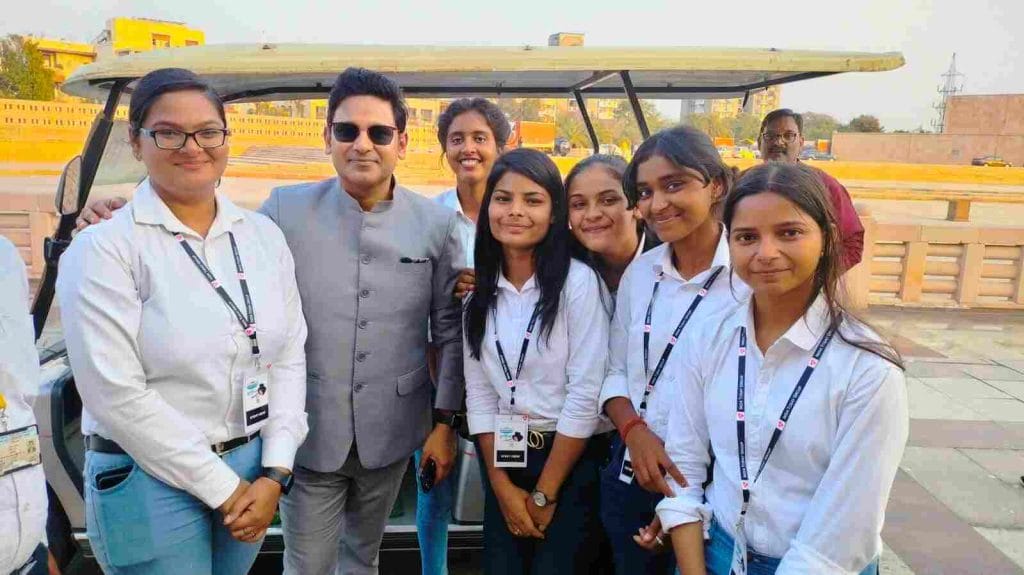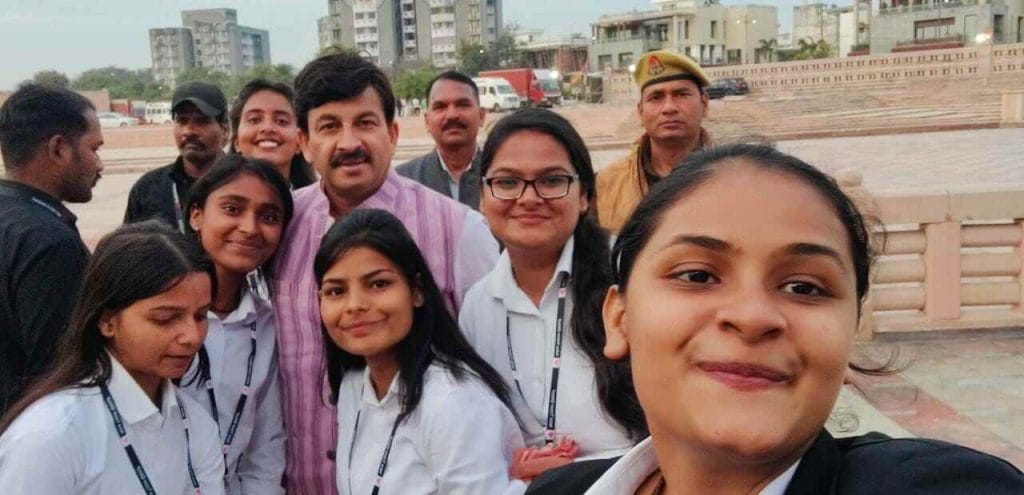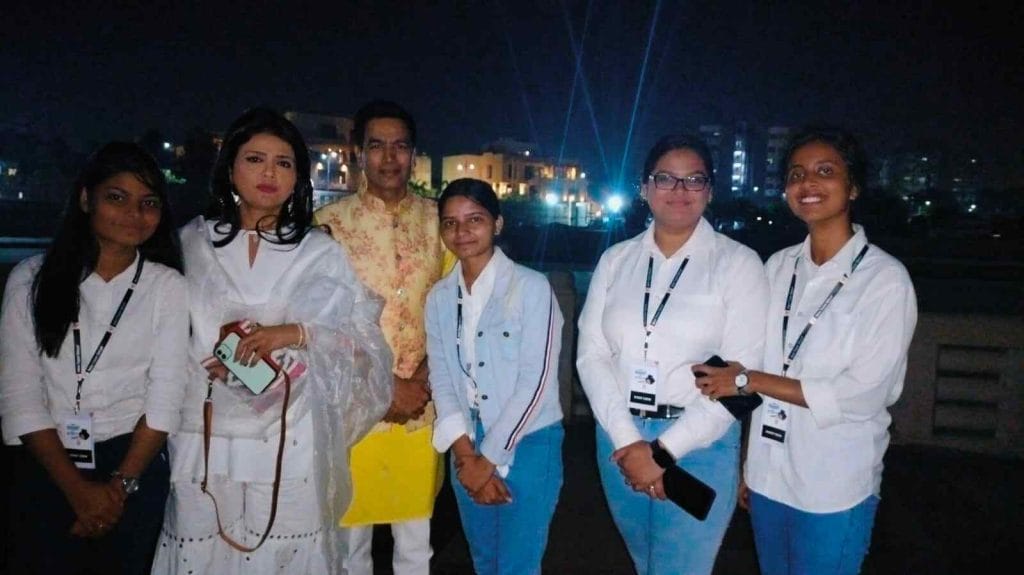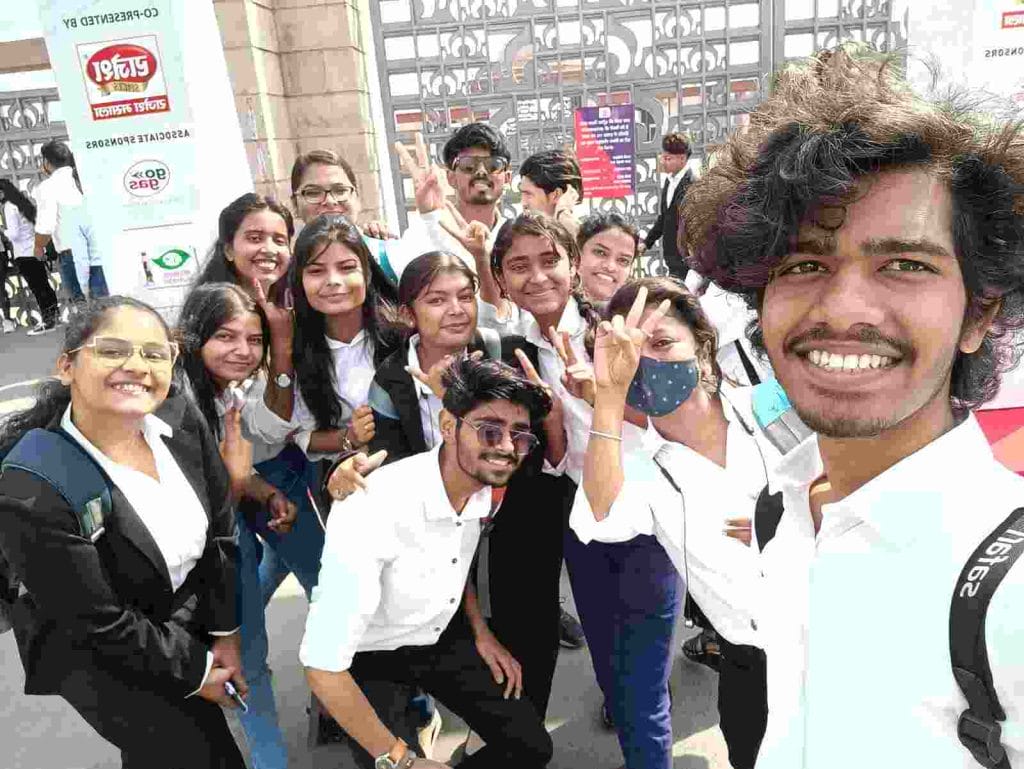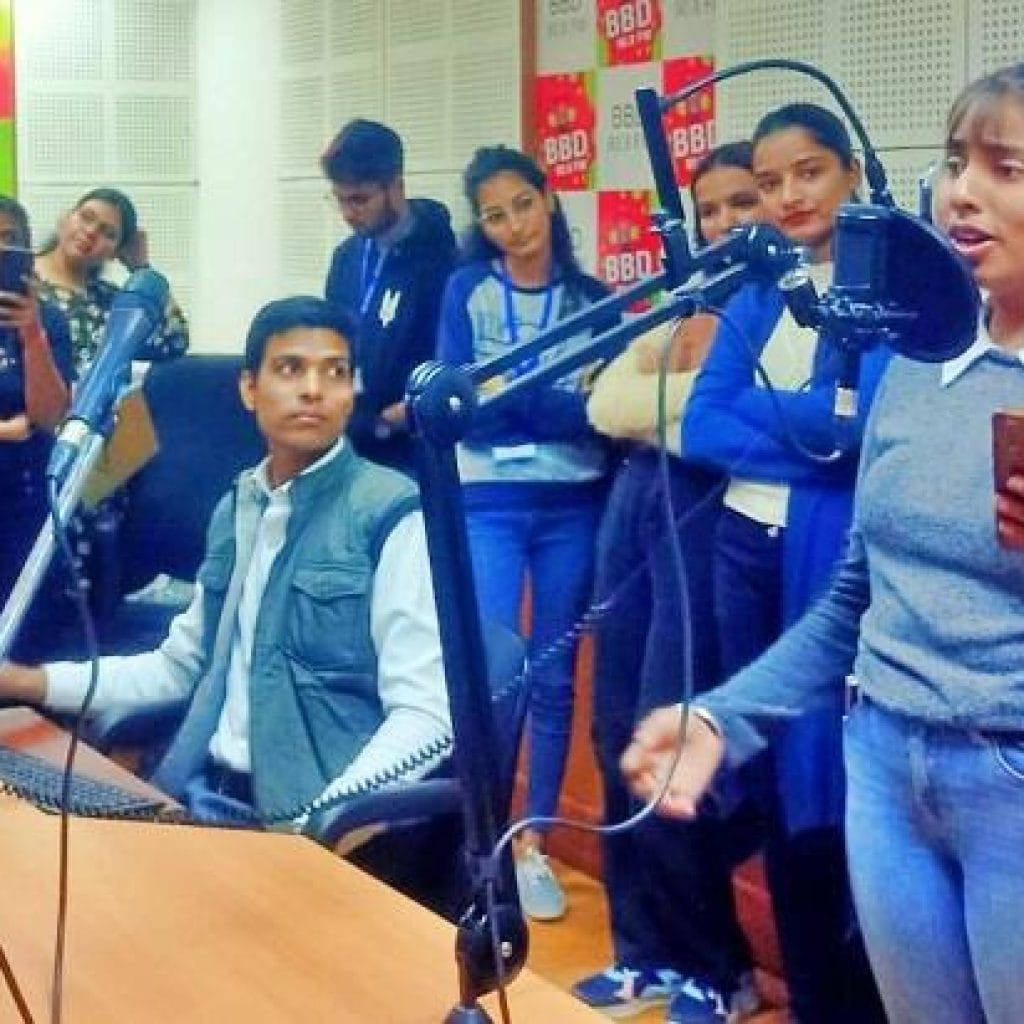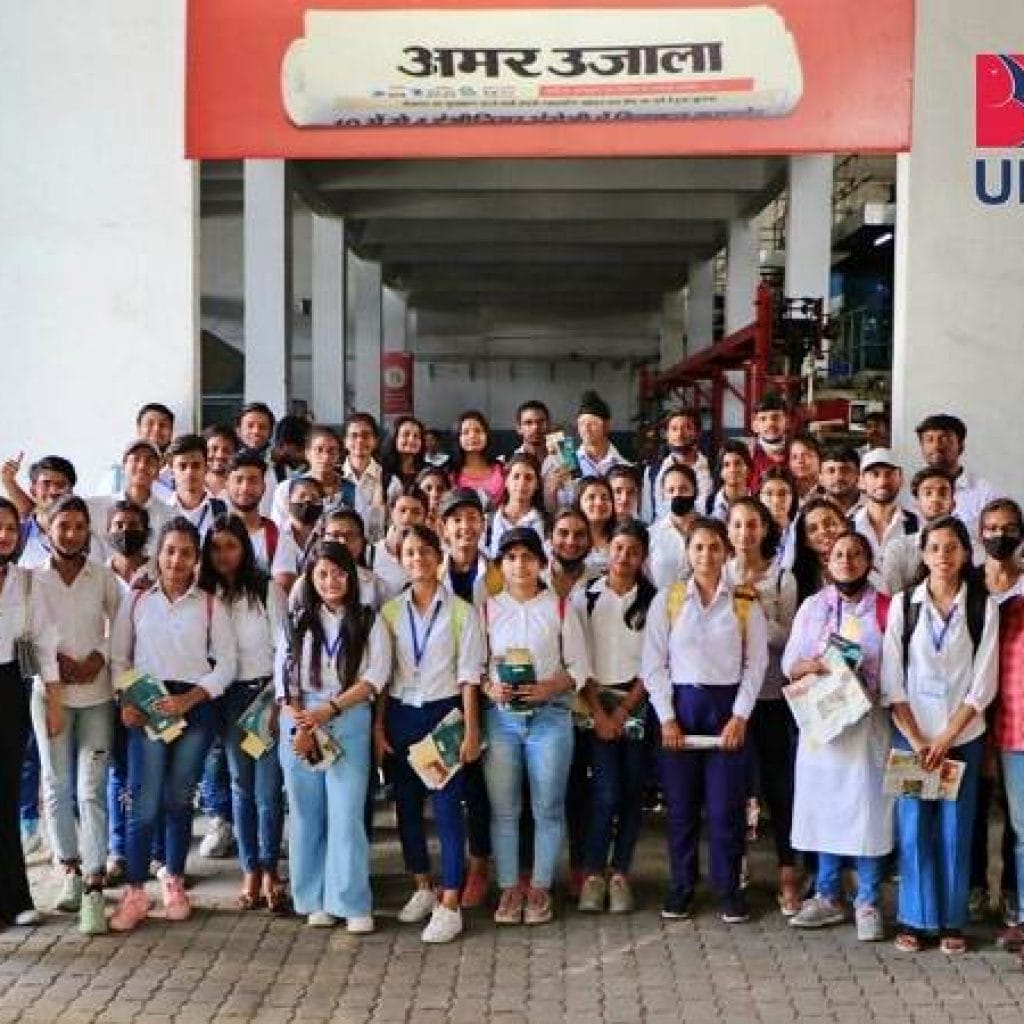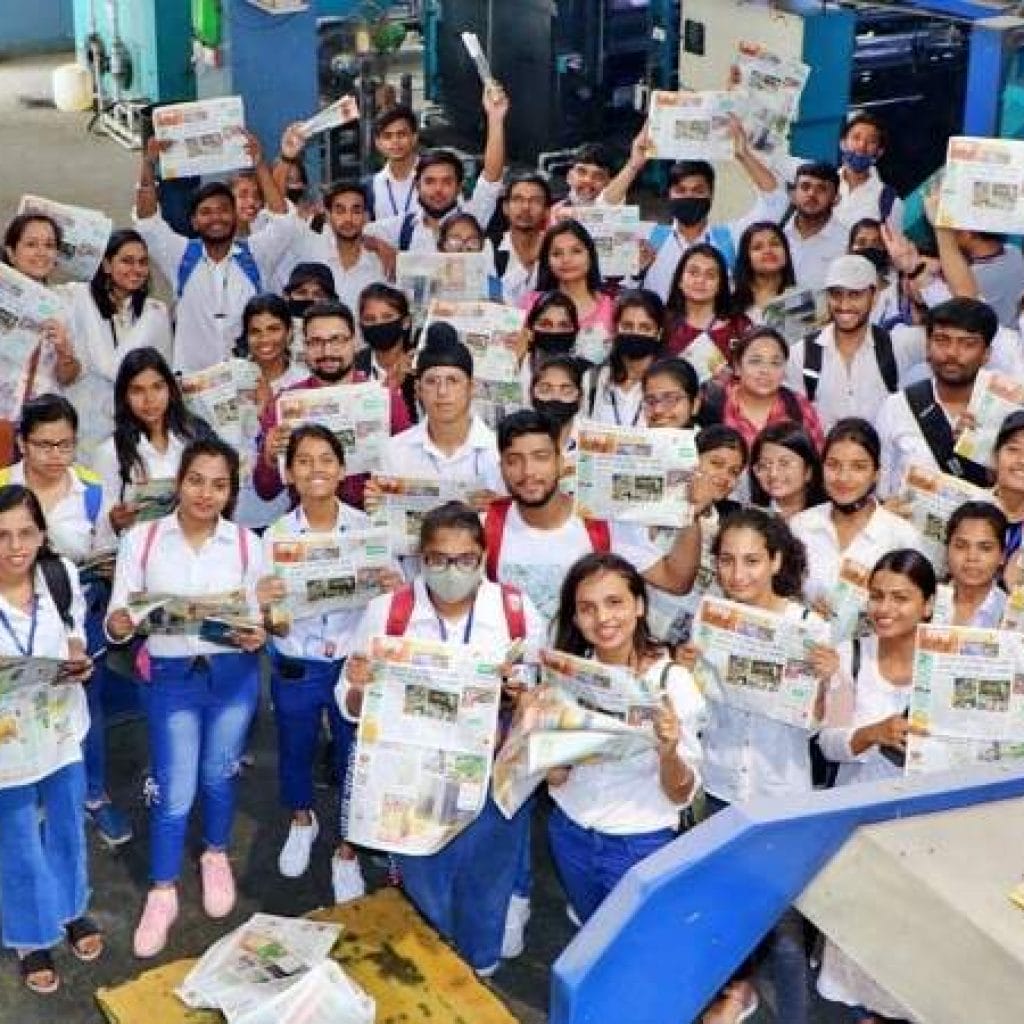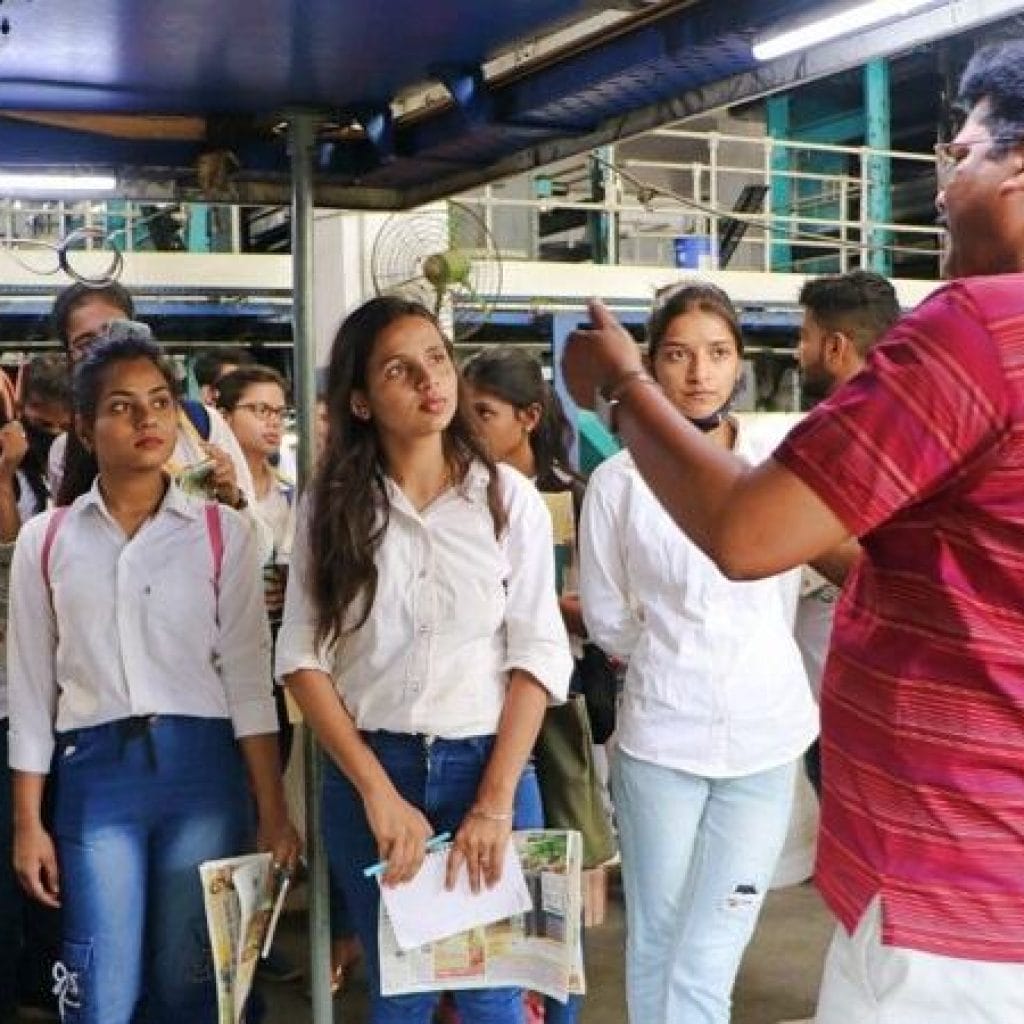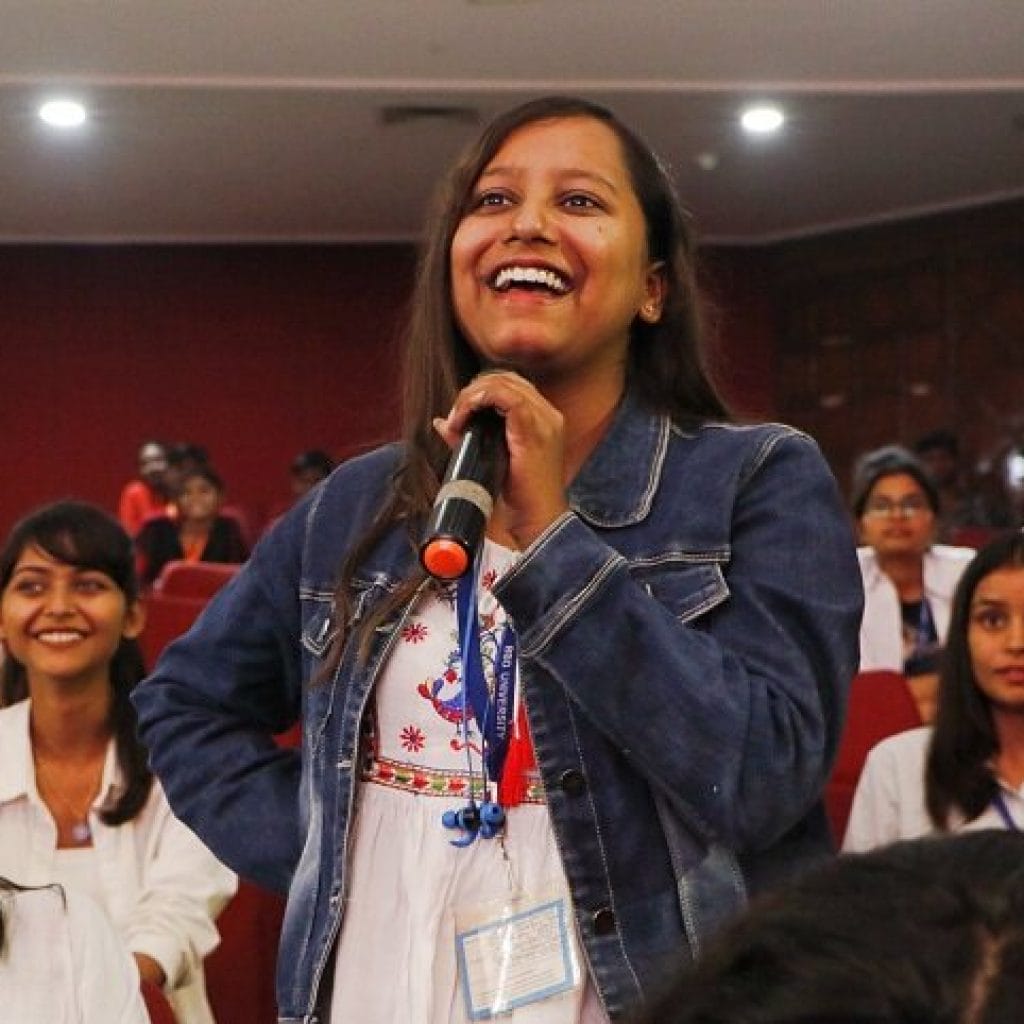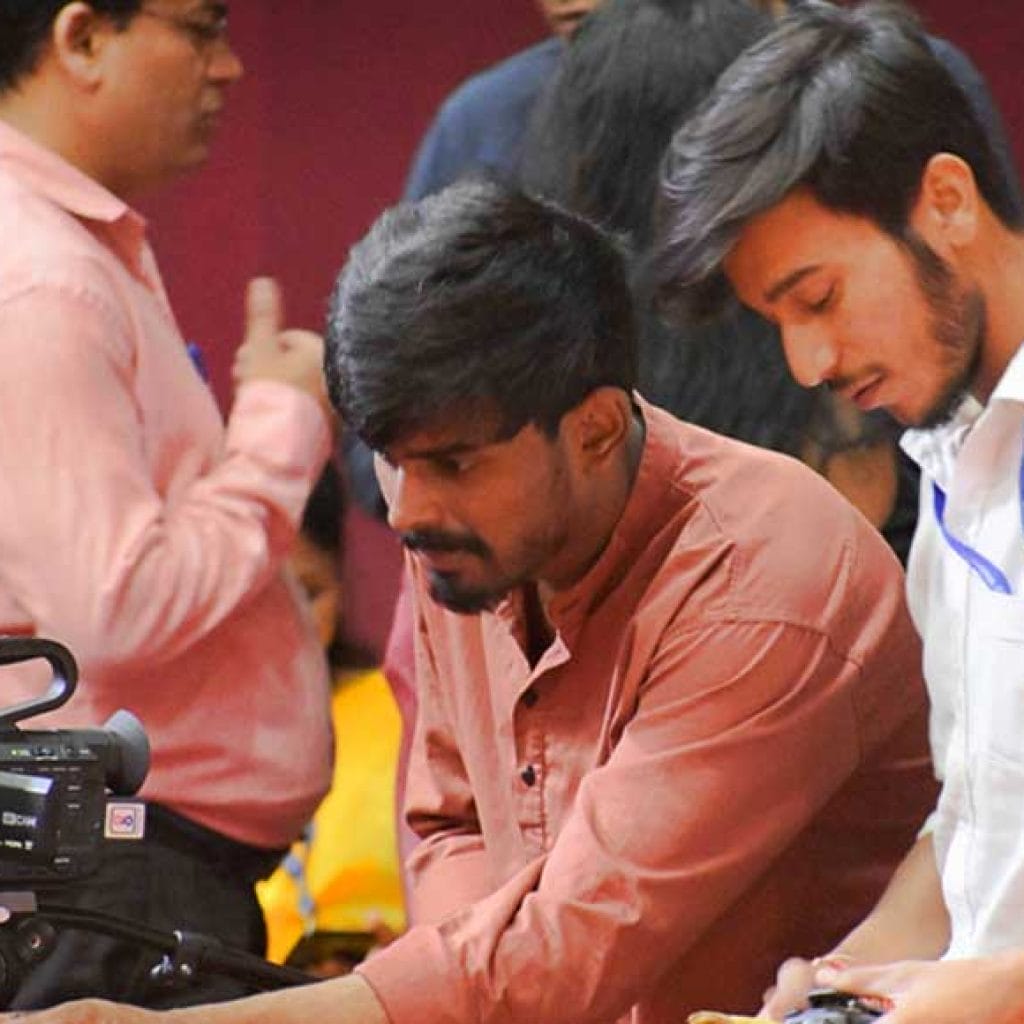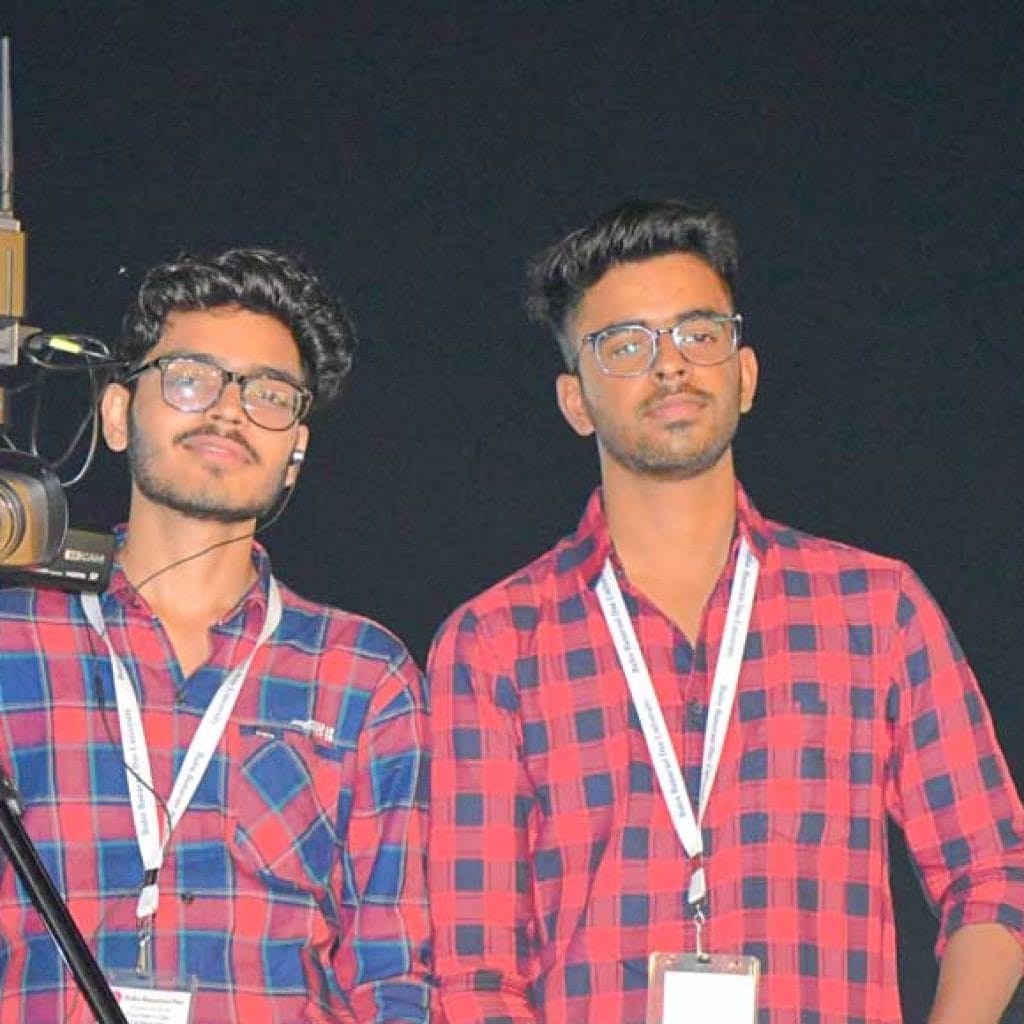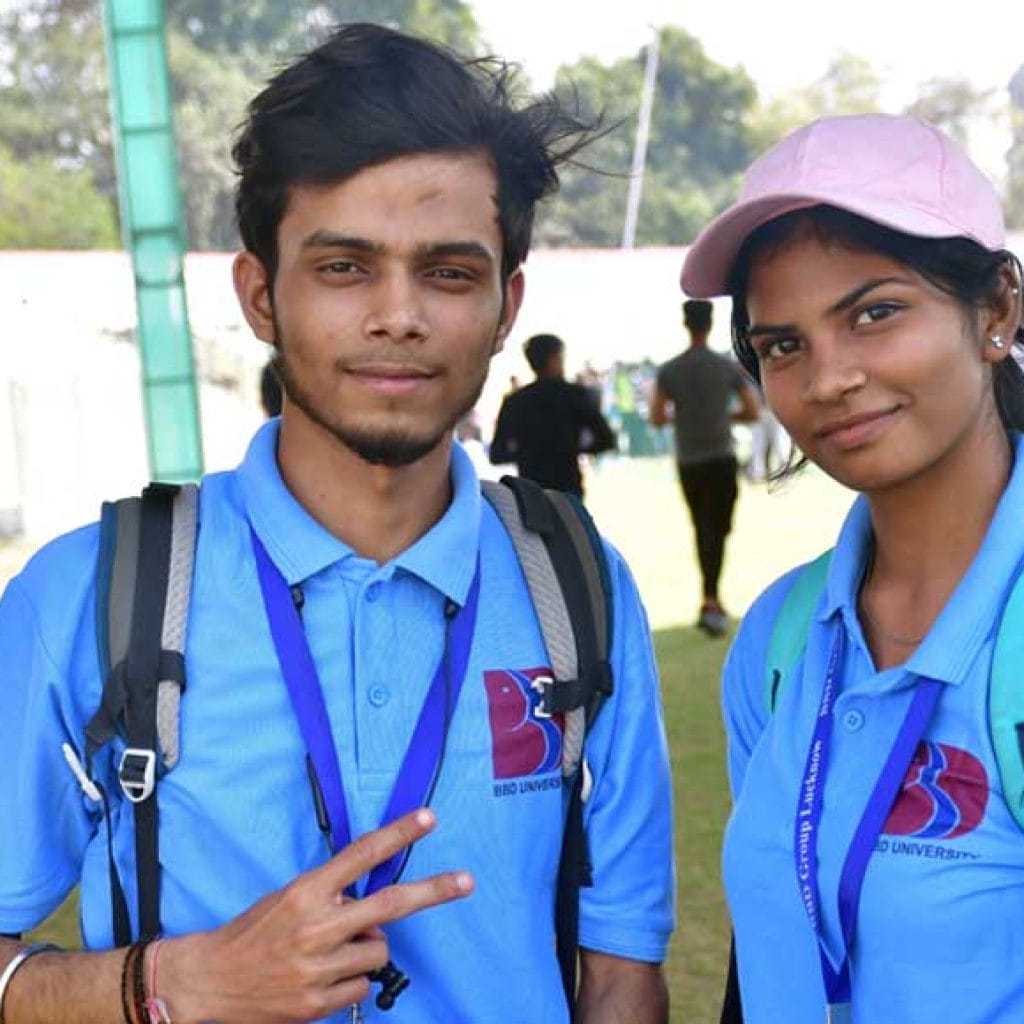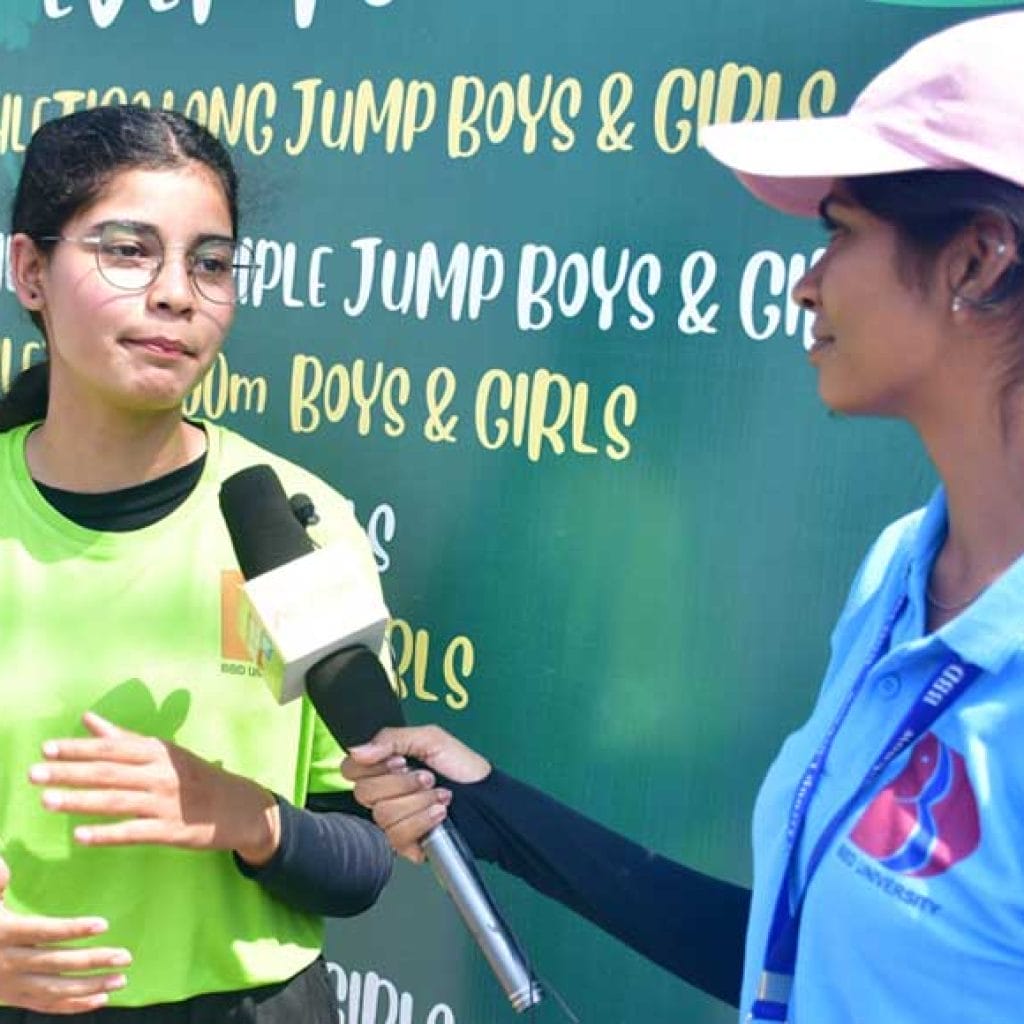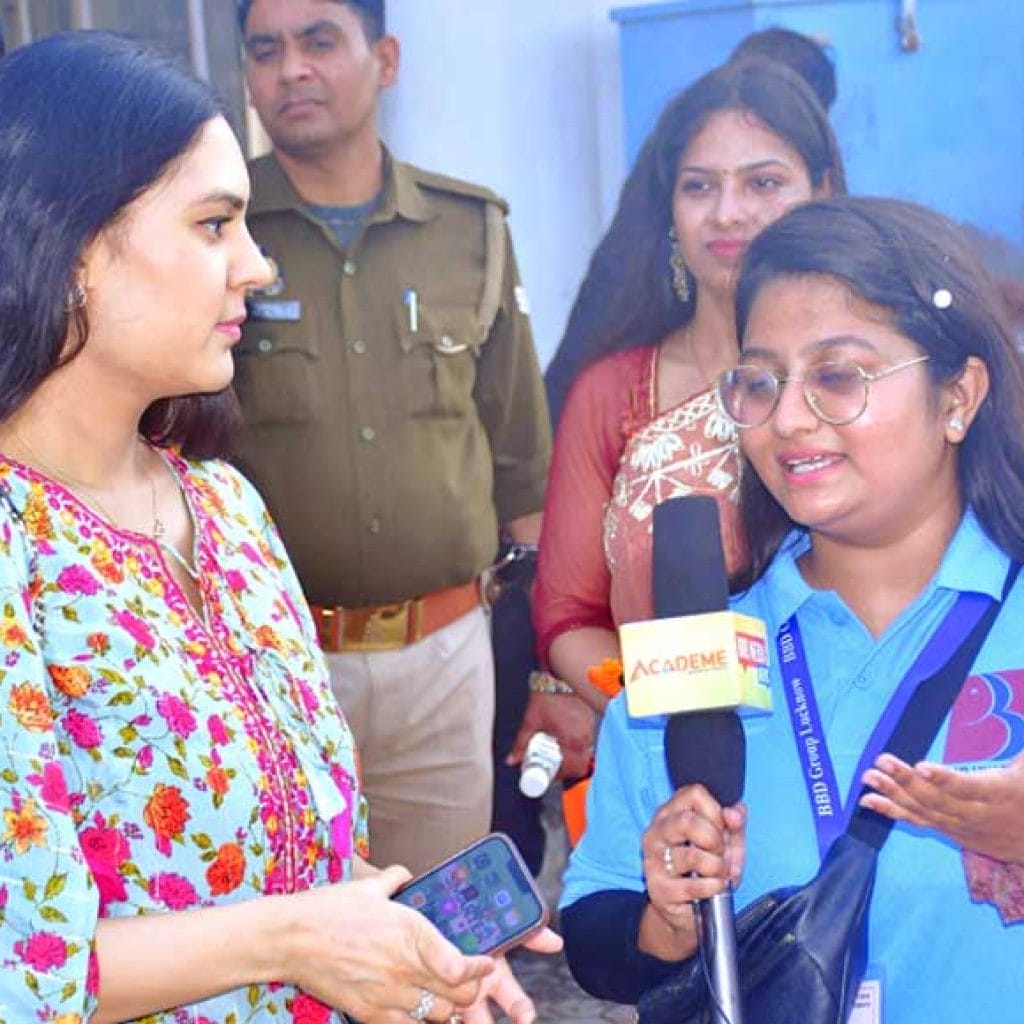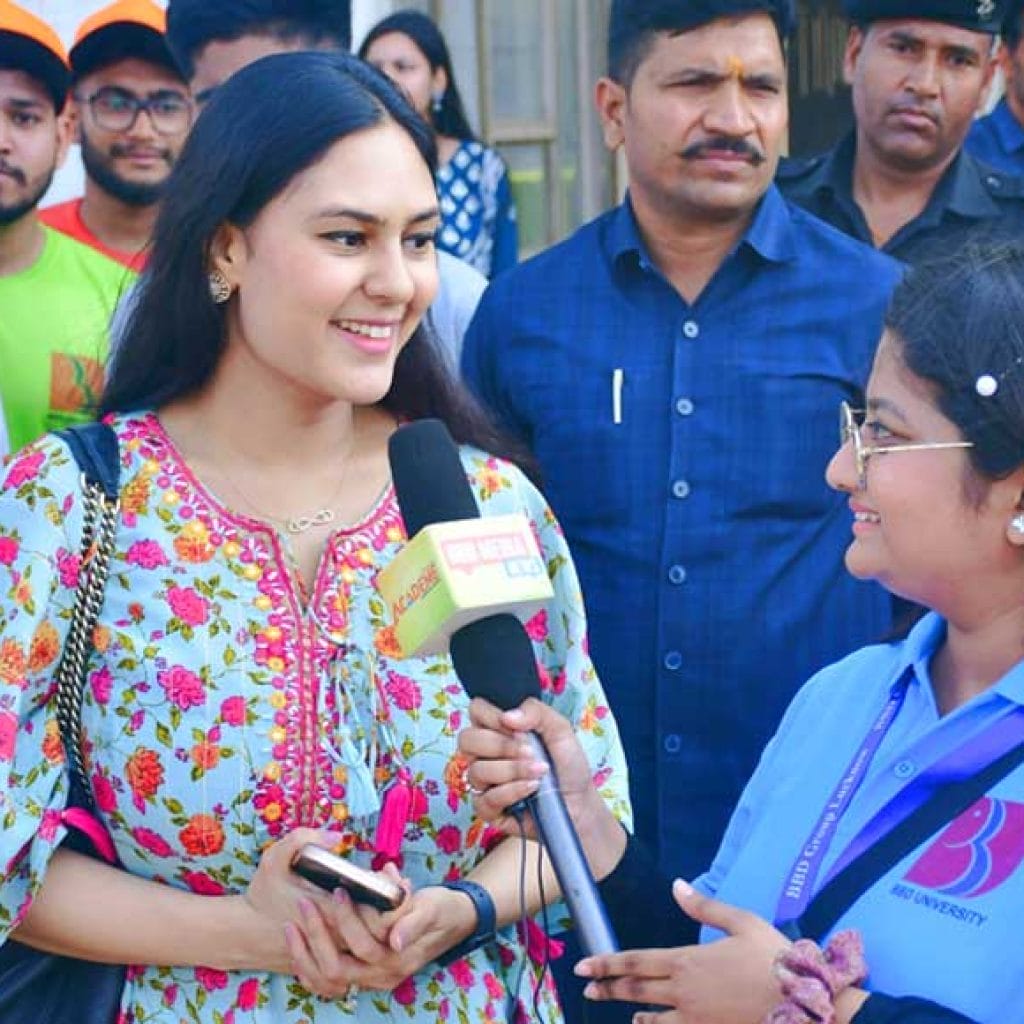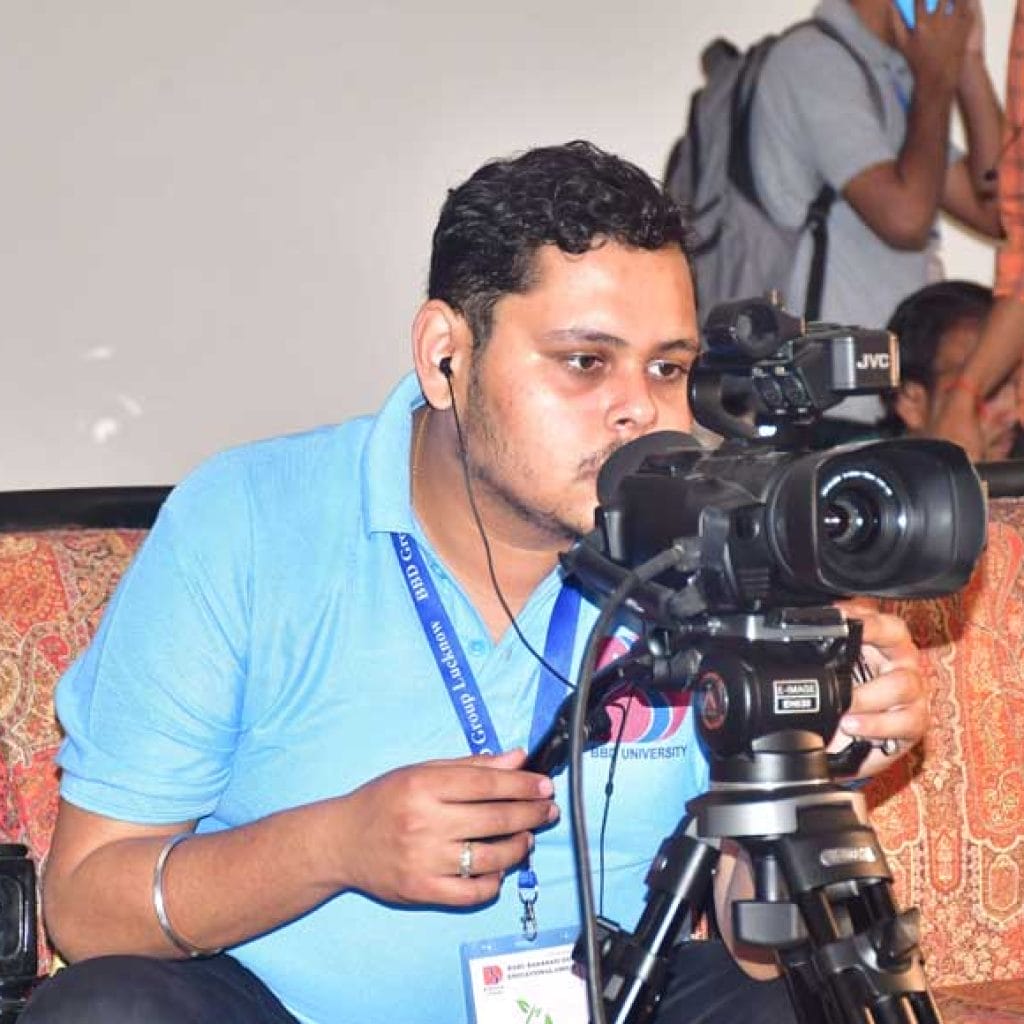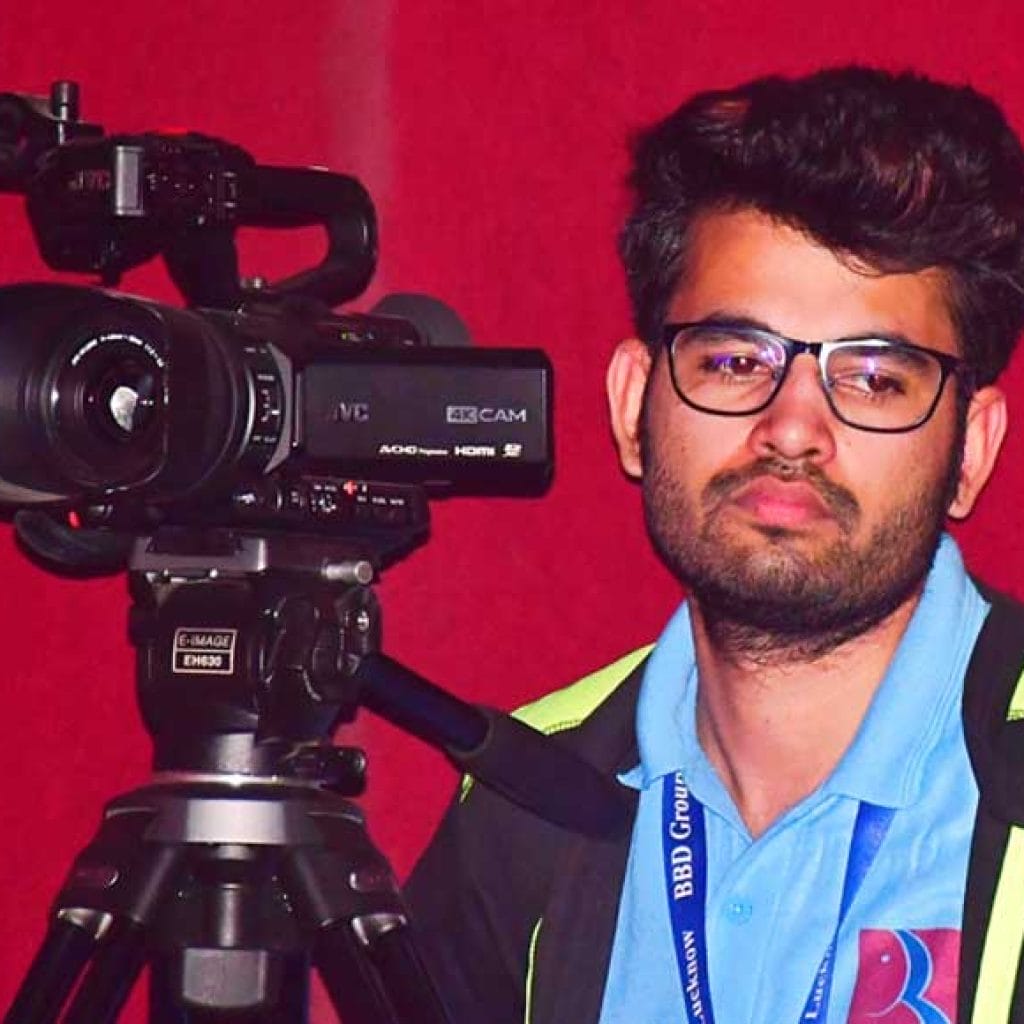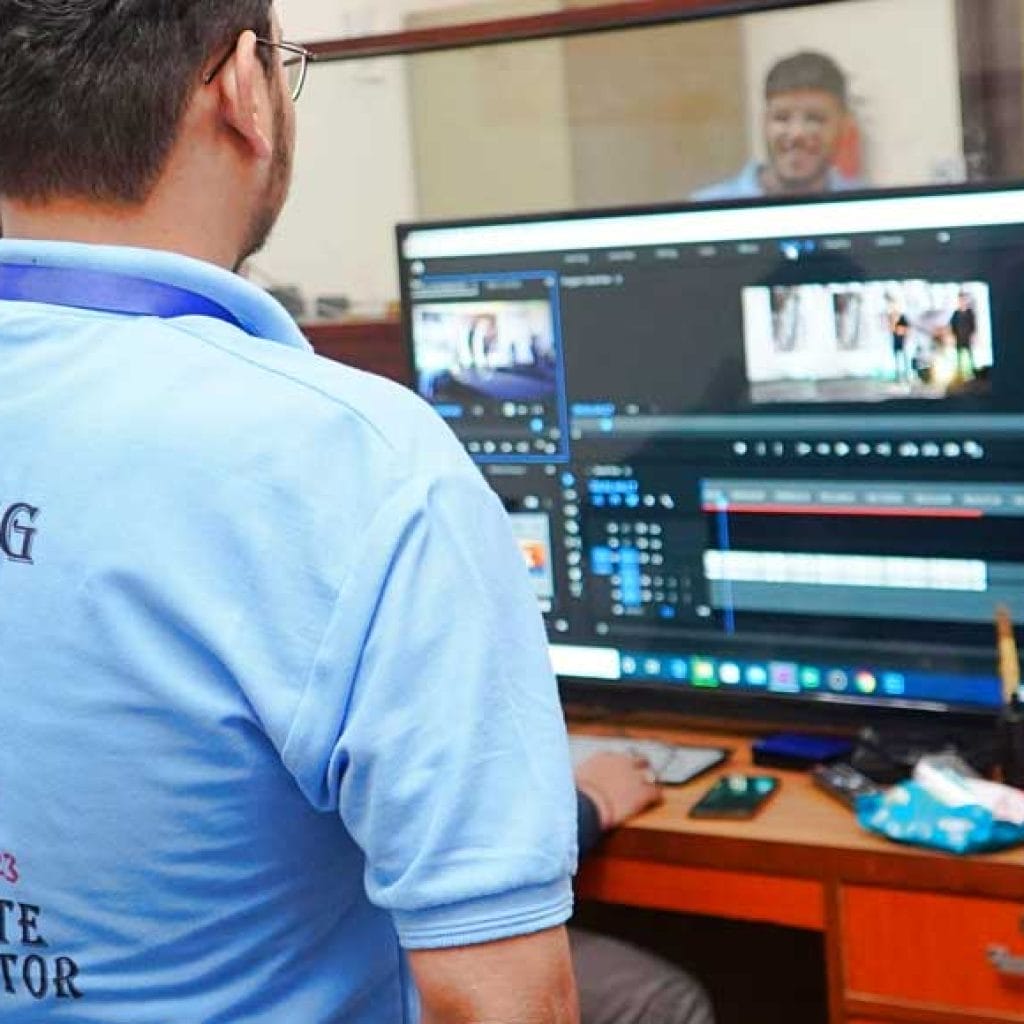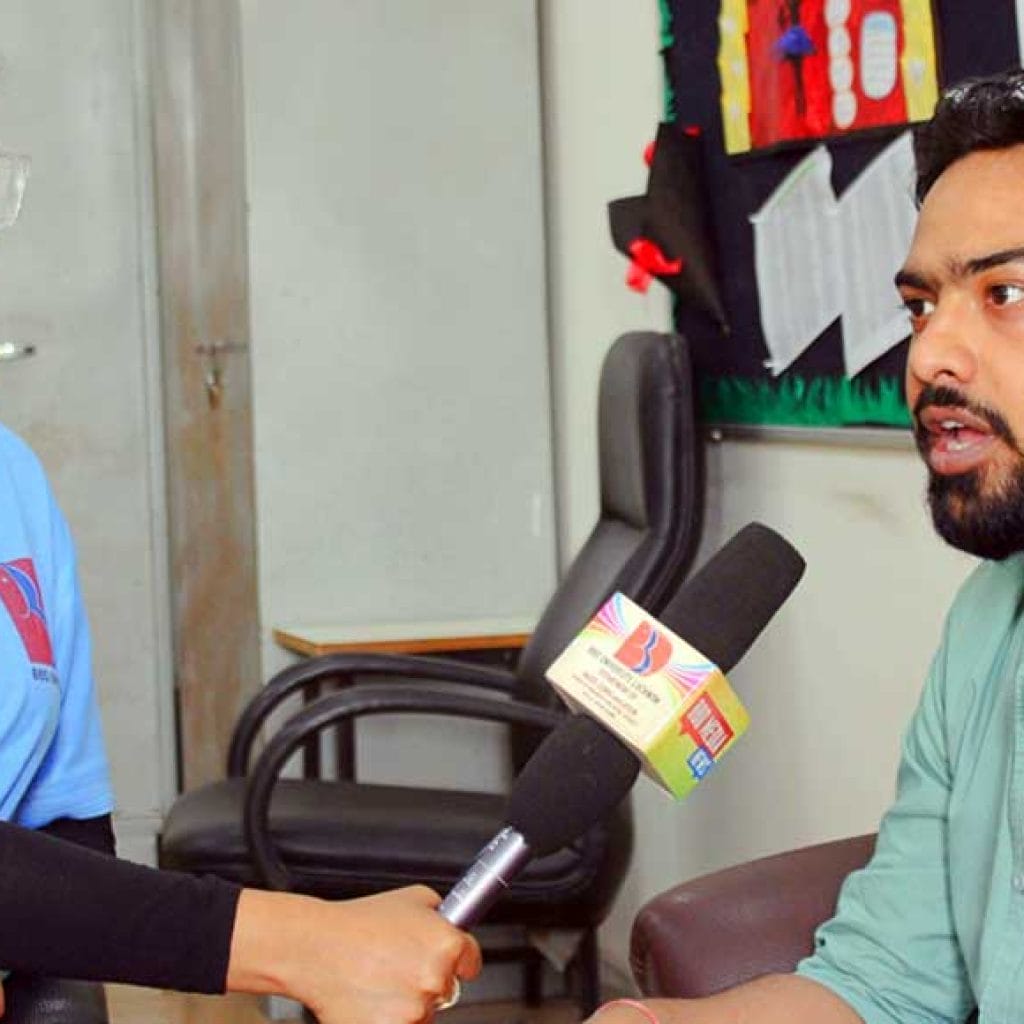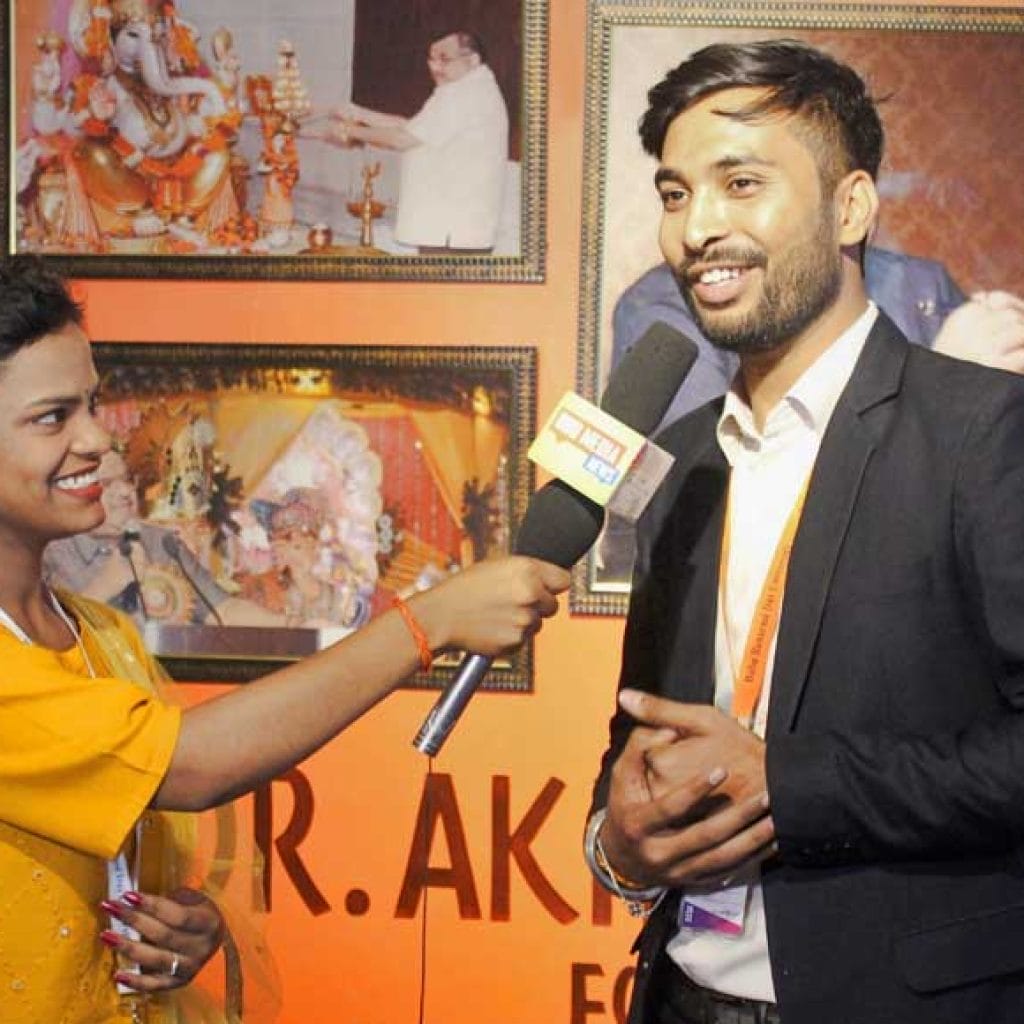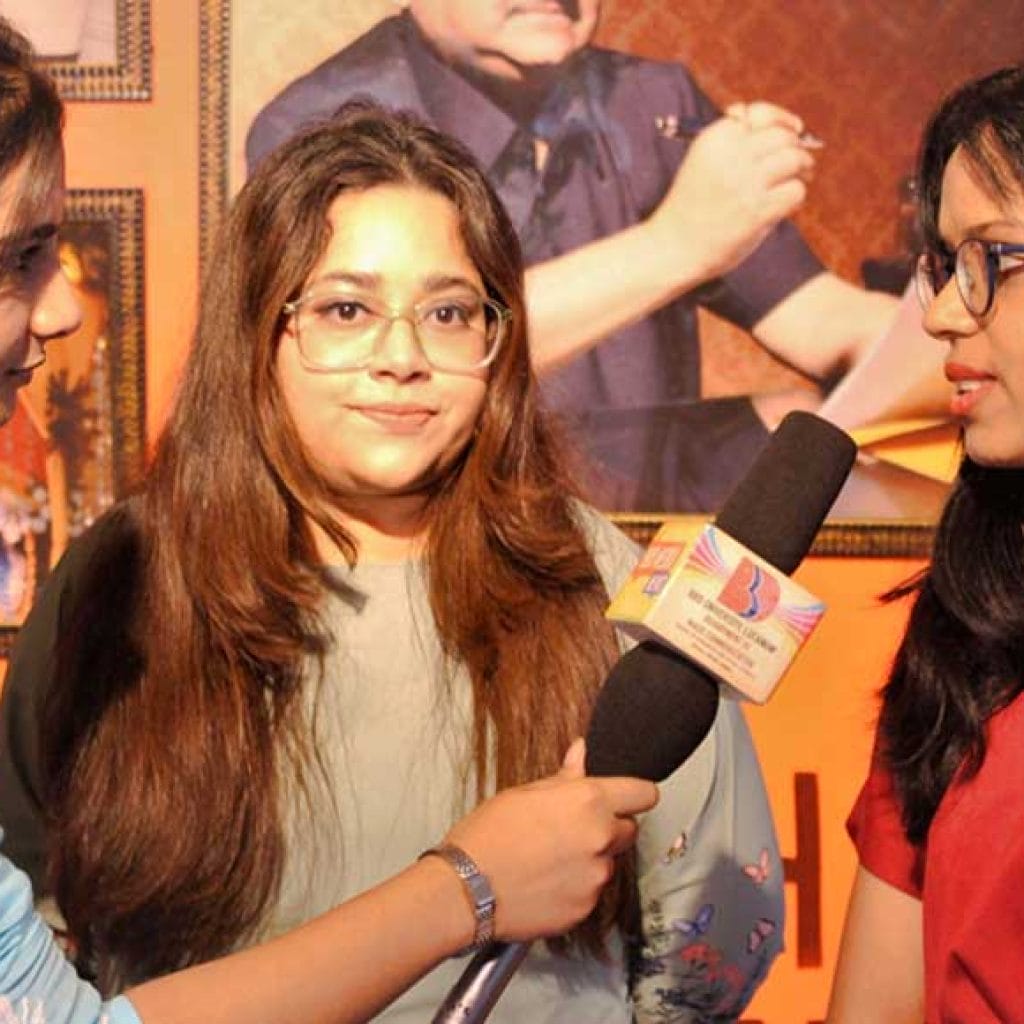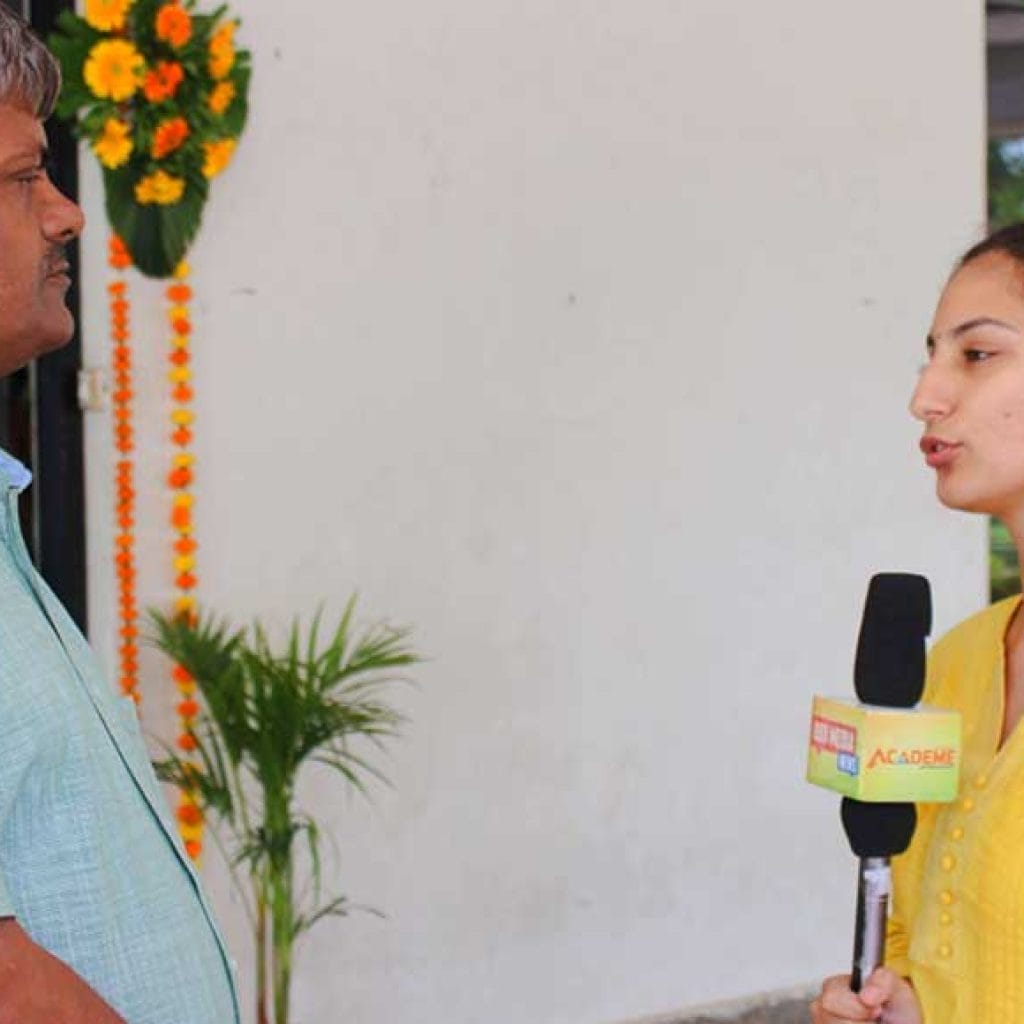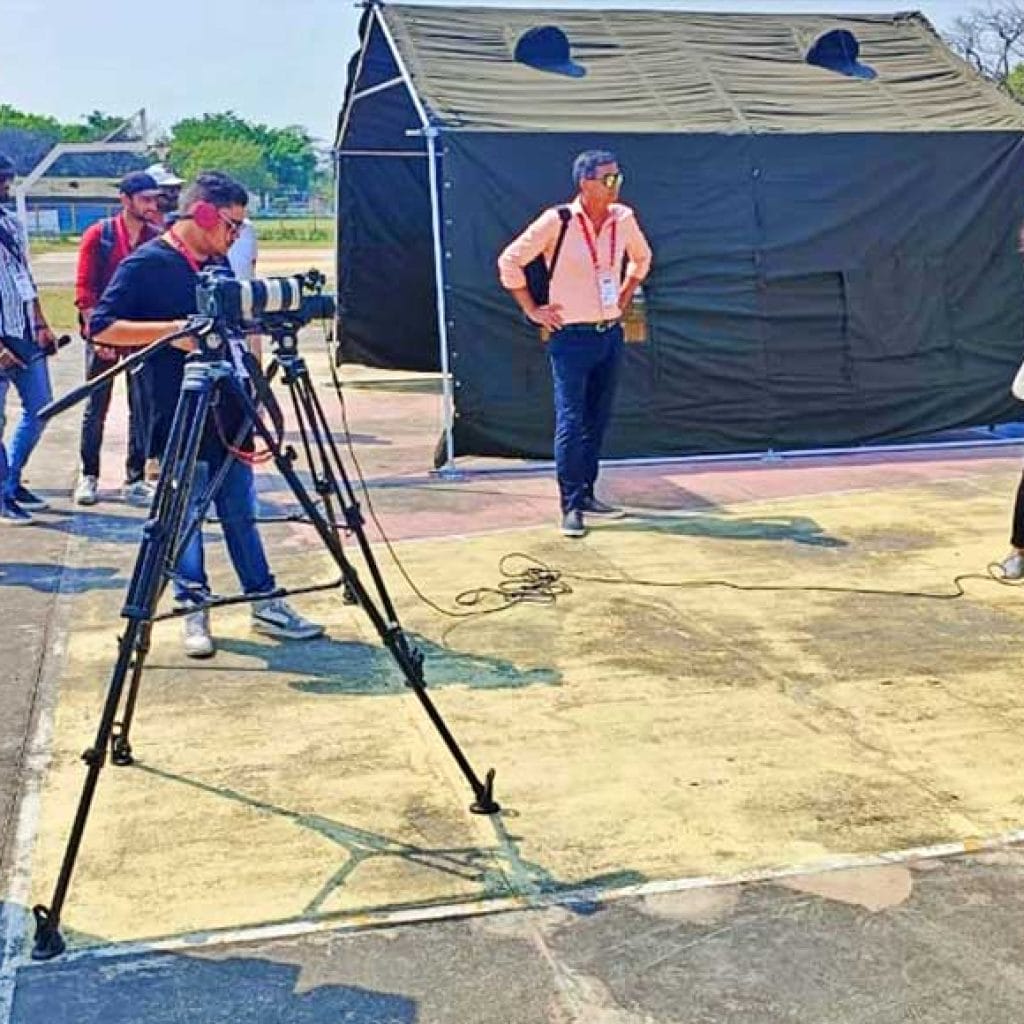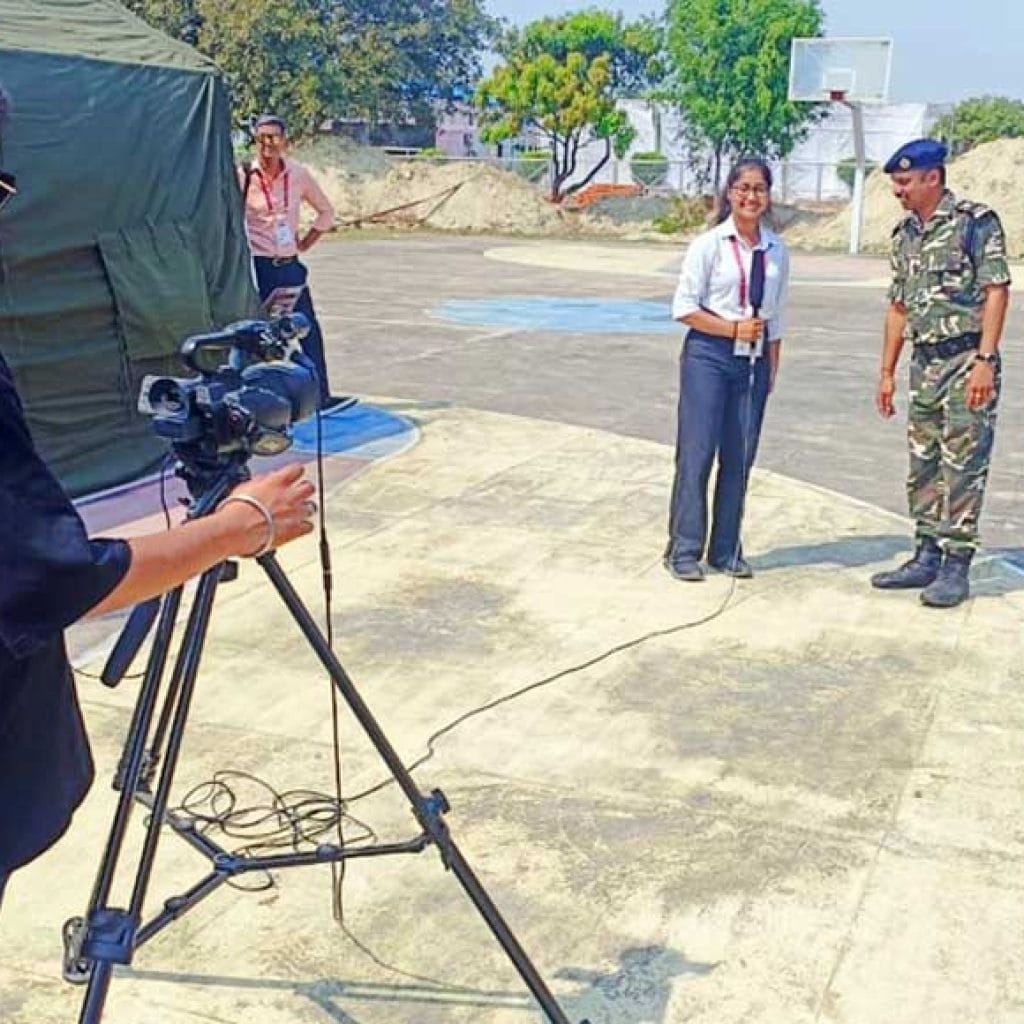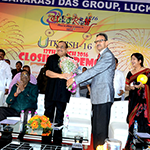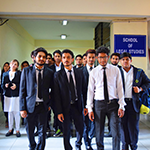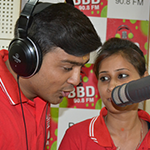Department of Mass Communication
About the Department
The School of Humanities and Social Sciences (Department of Mass Communication) began its journey in 2014 aiming to create media professionals who possess both intellectual and technical rigor of high caliber. The Department is well facilitated with Modern Curriculum based on current Media Industry Standards. The Department is equipped with Photography and News Studio for overall nurturing of the students. Generations of students at DOMC have developed their own abilities, elevating the media and communication sector as a result of its holistic pedagogy.
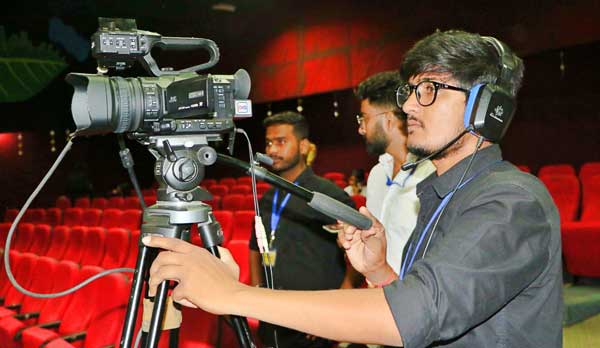 The department offers a wide range of courses in digital multimedia, digital technologies, cinema and television studies, communication theories, and cultural studies of communication.
The department offers a wide range of courses in digital multimedia, digital technologies, cinema and television studies, communication theories, and cultural studies of communication.
Focus on mass media concepts, theories and professional practices amongst highly qualified faculties, make the students well versed with the ability to critically analyse things and make their mark in the competitive world. Our objective is to produce media entrepreneurs with bestowing knowledge in journalism and mass communication, preparing them to be leaders and best team mates for a remarkable career in media. Giving a unique emphasis on self-employability is one of the key development intents of our Department.
A comprehensive awareness of media practices as well as up-to-date knowledge, critical thinking, and media technology handling skills are the main goals of the course. The course places a strong emphasis on building fundamental skills and an understanding of communication across mass media, in all of its complexity, political dynamics, and technical advancements and changes.
The goal of the course is to increase students’ employability in fields such as public policy, audio/video production, higher education, and specialised fields outside of the media sector as well. The College is eager to take advantage of the outreach initiatives and programmes of the Government of India in the areas of knowledge application and skill development because some of the focal areas of the Course are also ones that are prominent on the national agenda. At the conclusion of Semester VI in the BAJMC Course and Semester IV in the MAJMC Course, a non-credit and required internship component is included to encourage interaction with industry and diversification into media and communication-related fields.
Our values, which are connected to our culture, are emphasized in our professional media education. It is receptive to human rights and secular principles in addition to social development requirements. We offer a unique space for recent graduates and postgraduates to learn about the media and connect with the global human race through effective communication in an interdependent society. We help students grow into mature adults who can truly “live and give worldwide, to not only to human beings but also to the nation.”
Vision
The Department of Mass Communication will establish standards for media education, research, extension, and training while utilizing cutting-edge technology to create a knowledge-driven information society that supports participatory democracy, human empowerment, and pluralism. Becoming a renowned institution for research, teaching, and developing ethical, social, and ecologically conscious human capital, all of which contribute to the success of the country
Mission
Our goal is to produce talented individuals who can satisfy the demands of modern mass media, redefining the future of journalism and the media in India. We seek to provide the media sector with those people who can assist the stakeholders in fostering a climate of freedom, sustainability, competency, and transparency.
Courses Offered
Department Highlights
Why Humanities & Social Sciences
The aim of the studies of humanities and social sciences is to impart, to the youth and each individual, knowledge of the social, political, economic, literary and artistic build of the world they have been living in.
Talking about both the disciplines separately, social sciences aim to connect different individuals in a way that they understand each other’s situation so as to live and prosper together with harmony and happiness, which is especially important in today’s world where globalisation and increasing communications are reducing boundaries such that practically everybody is staying together in one big world and that any misunderstanding can lead to havoc and loss of peace.
Humanities, on the other hands, aims to connect an individual to his/her self through art and, in turn, provide the world an artist who provides a relief from the troubles and tensions of life and helps in gaining peace and internal harmony. Needless to say that such artistic individuals have not only had the most colourful of lives, but have almost always been handsomely rewarded for their work.
